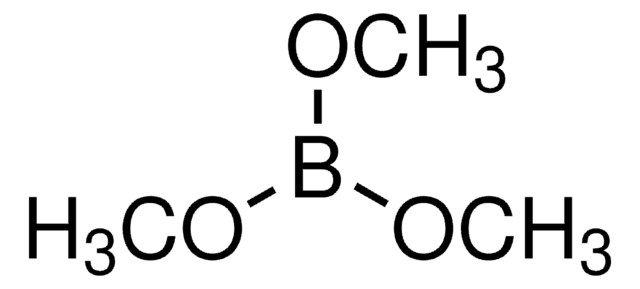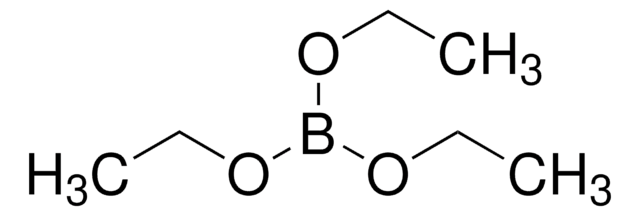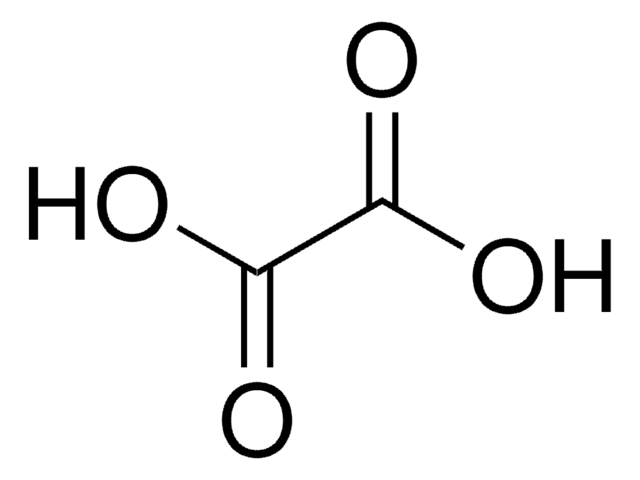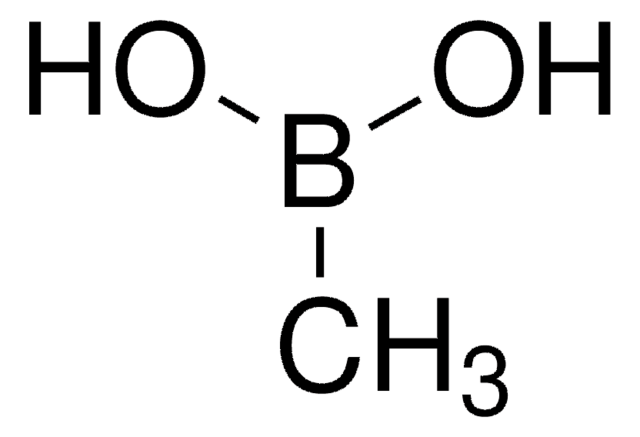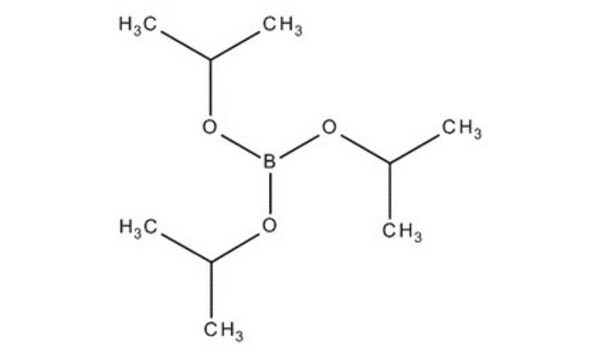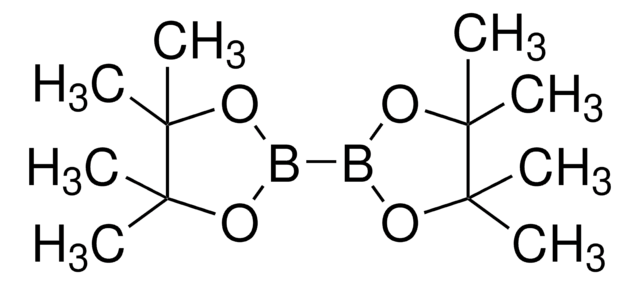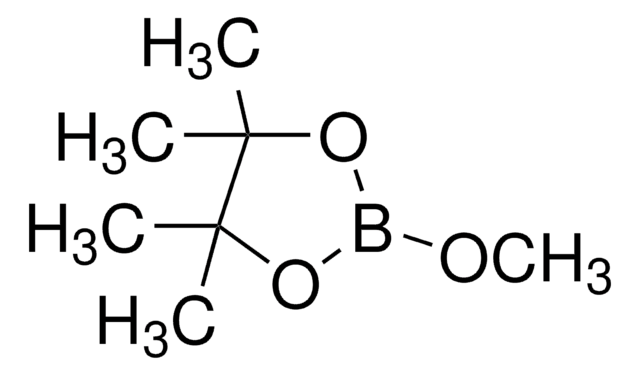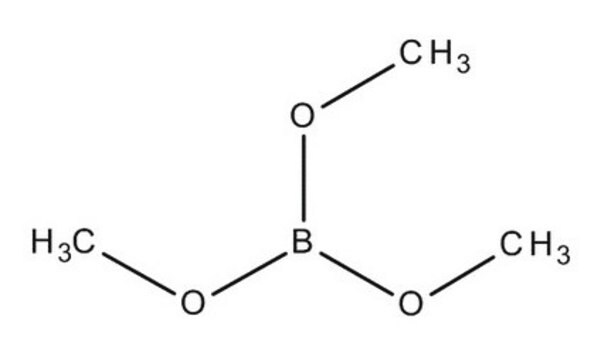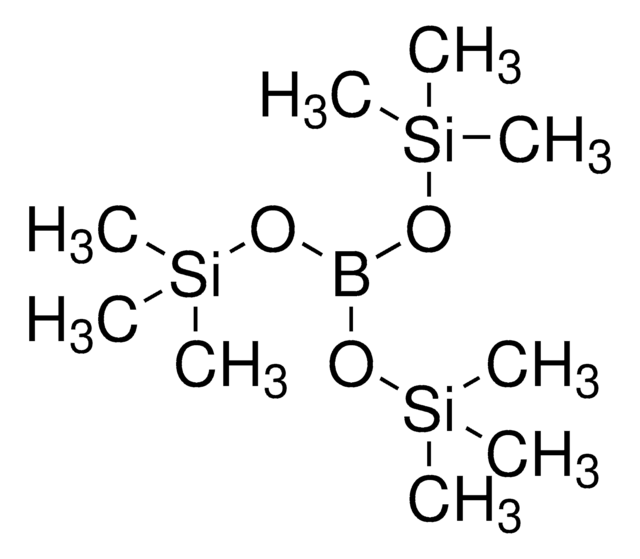197335
Triisopropyl borate
≥98%
Synonym(s):
Boric acid triisopropyl ester, Boron isopropoxide, Triisopropoxyborane
About This Item
Recommended Products
vapor pressure
76 mmHg ( 75 °C)
Quality Level
Assay
≥98%
form
liquid
impurities
1% isopropanol
refractive index
n20/D 1.376 (lit.)
bp
139-141 °C (lit.)
density
0.815 g/mL at 25 °C (lit.)
SMILES string
CC(C)OB(OC(C)C)OC(C)C
InChI
1S/C9H21BO3/c1-7(2)11-10(12-8(3)4)13-9(5)6/h7-9H,1-6H3
InChI key
NHDIQVFFNDKAQU-UHFFFAOYSA-N
Looking for similar products? Visit Product Comparison Guide
Related Categories
General description
Application
Signal Word
Danger
Hazard Statements
Precautionary Statements
Hazard Classifications
Flam. Liq. 2
Storage Class Code
3 - Flammable liquids
WGK
WGK 2
Flash Point(F)
62.6 °F - closed cup
Flash Point(C)
17 °C - closed cup
Personal Protective Equipment
Certificates of Analysis (COA)
Search for Certificates of Analysis (COA) by entering the products Lot/Batch Number. Lot and Batch Numbers can be found on a product’s label following the words ‘Lot’ or ‘Batch’.
Already Own This Product?
Find documentation for the products that you have recently purchased in the Document Library.
Customers Also Viewed
Our team of scientists has experience in all areas of research including Life Science, Material Science, Chemical Synthesis, Chromatography, Analytical and many others.
Contact Technical Service